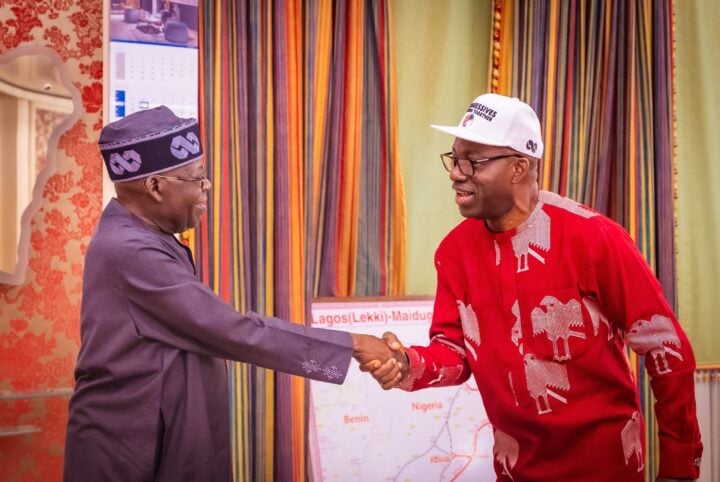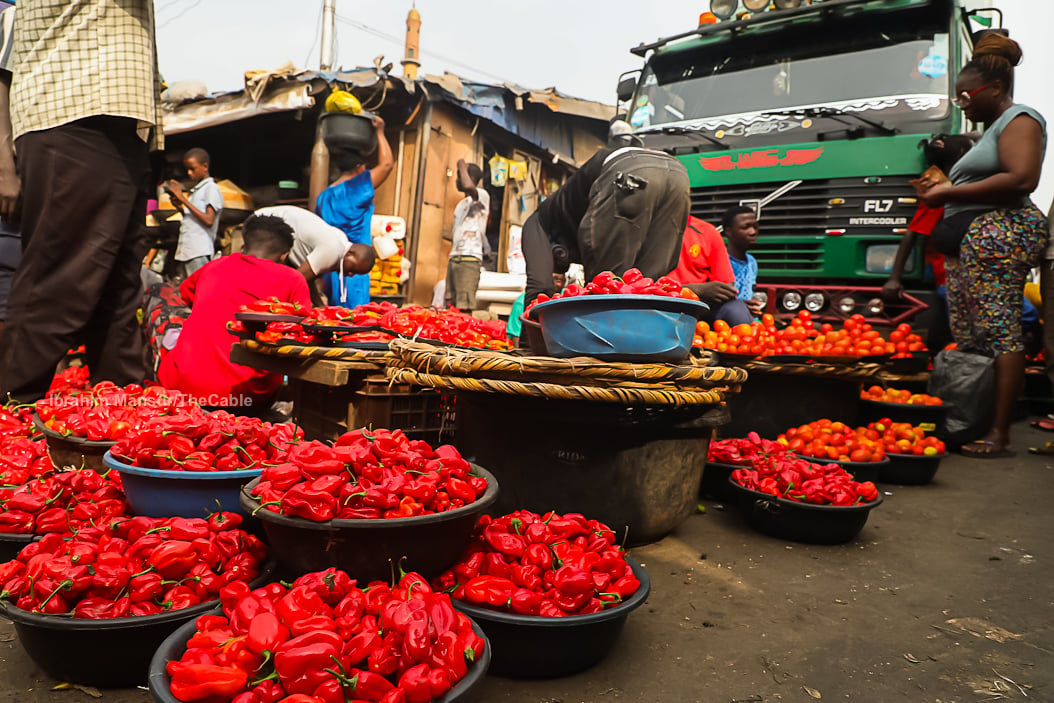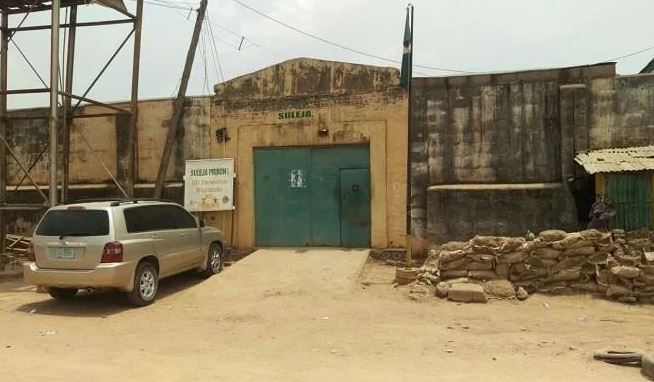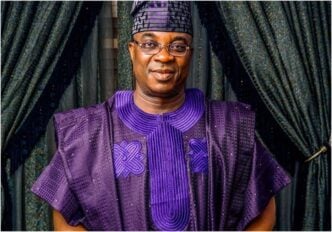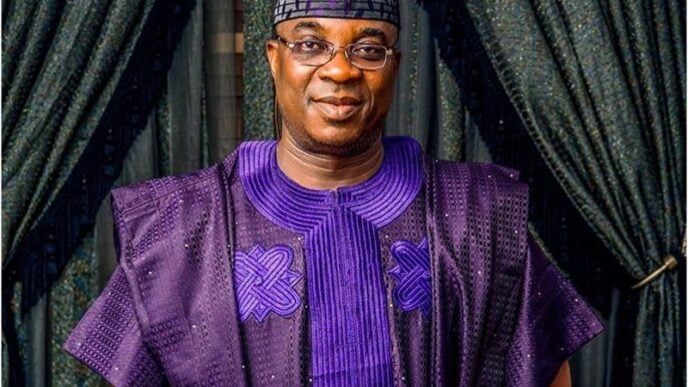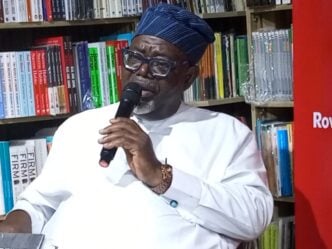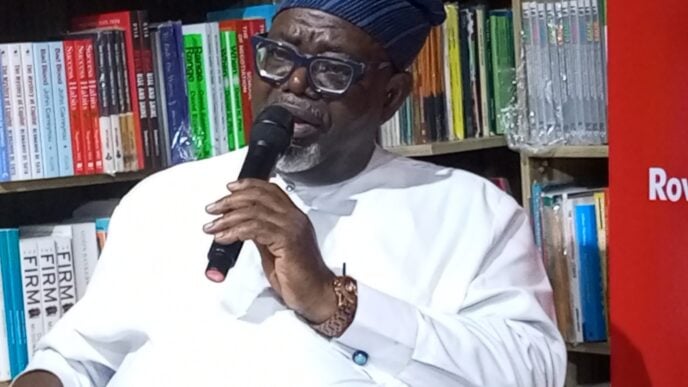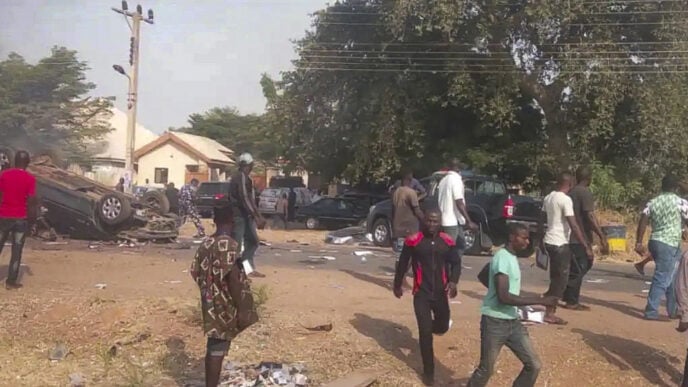Bola Tinubu (left) receives Chukwuma Soludo at the State House on August 12
There is no doubt that since May 2023, President Bola Ahmed Tinubu’s economic policy has had stabilizing effects on Nigeria’s macro-economy. The business elite, rating agencies and institutional investors can see the very impactful macroeconomic progress made in President Tinubu’s administration in the stability of the country’s currency, increased foreign reserve reported by the Central Bank of Nigeria (both net and gross reserves), increased crude oil exports, increased non-oil exports and productivity. But more work still needs to be done because at the micro-economic level (in everyday life) many Nigerians still feel economic hardship. This column believes that President Tinubu needs to stay the course as he is on track and would be able to solve the teething problems being experienced by everyday Nigerians as a result of his bold reforms. Though the task ahead looks daunting, there are indications that the President would get it right. Many leading economists also believe this and without these bold reforms by President Tinubu, Nigeria would have been bankrupt today.
A few days ago, the governor of Anambra State and former governor of Nigeria’s central bank, Chukwuma Soludo, and the Director-General of the World Trade Organization (WTO) and former coordinating minister of Nigeria’s economy, Ngozi Okonjo-Iweala, endorsed President Tinubu’s economic reforms. These are big endorsements coming from people who understand macroeconomics and developmental economics.
“You cannot really improve an economy unless it’s stable. So he has to be given the credit for the stability of the economy. So the reforms have been in the right direction. What is needed next is growth’’, Ngozi Okonjo-Iweala remarked. Also, Chukwuma Soludo told newsmen after he paid a visit to President Bola Tinubu last Tuesday that he was impressed by the ‘’bold steps [the President] has taken in areas of the economy and structural reforms” and encouraged the President to stay the course.
The World Bank has also acknowledged the growing stability of the naira, crediting it to the administration’s market-reflective and unified forex policies which it says has resulted in Nigeria’s accretion of foreign reserve. (In one year, Nigeria’s net foreign exchange reserves jumped from $3.99 billion (2023) to $23.11 billion (2024) which is a +479% increase. Within this period, gross reserve rose to $40.19 billion).
Advertisement
Food inflation, transport and energy costs, unemployment and deteriorating purchasing power – which were experienced in the country after the floating of the naira and the removal of fuel subsidy – exacerbated hardship for the everyday Nigerian. But these are abating. Currently, at the micro-level what we see is a case of short-term pain for potential long-term gain. Macroeconomic stabilization is a necessary foundation for economic prosperity (this was also affirmed by WTO’s DG after her interaction with the President). Actually, the micro-economy will start looking good only when inflation is drastically reduced and real wages/incomes rise. Fortunately, the just released inflation figures show that the current administration is getting there as headline inflation seems to be abating from a high of 33.4% in July 2024 to 21.88% in July 2025. (Though the CPI rebasing and methodological updates lowered inflation estimates, inflation has been gradually easing since mid-2025).
President Tinubu’s broad economic vision to make Nigeria a one trillion economy in 7–8 years, with rising incomes, lower poverty, and global competitiveness can be achieved if he stays the course. This vision seems to guide his economic reforms and policies. Though this vision seems daunting, it is achievable. To achieve this, Nigerian needs sustained productivity and GDP growth (double digit growth rates are needed and the 7% anticipated growth in 2027 by FGN will need to be greatly increased in subsequent years), which would be driven by improved electricity, logistics and regulatory reforms. The current tax reforms, the disinflation trajectory and forex stability being pursued by the central bank, investments in human capital development and security measures being taken by the administration are core enablers for this anticipated GDP growth. (The U.S. State Department has approved a potential $346 million foreign military sale to Nigeria, including precision munitions—such as bombs, rockets, and bomb components). Fundamentally, Nigerian banks need to be robust in order to support these envisioned increased economic activities. The current banking recapitalization exercise by Nigerian banks is a well-thought-out strategy to support the President’s vision of a one trillion-dollar economy.
With a one trillion-dollar economy and a population of 230 – 250 million people, the GDP per capita of Nigeria would be approximately $4,000–$4,350 (which is way larger than today’s figures of less than $1,000). This implies an improved quality of life for Nigerians. To understand what this means in terms of the envisaged quality of life, compare this figure with the current GDP per capital of South Africa – the largest economy in Africa – which is currently around $6,253.
Advertisement
With a one trillion-dollar economy and a 15–18% tax-to-GDP ratio, public revenues would reach $150–$180 billion (compare this to today’s figures which is less than $18 billion). A $180 billion yearly revenue, if well managed, is enough to fund a sustained capex of $100 billion/year without fiscal stress. A one trillion-dollar economy would support multiple $10–$50 billion revenue streams from firms across finance, telco, cement, FMCG, energy, logistics, tech, and agribusiness. A one trillion-dollar economy would be powered by 25 -35GW of electricity as against the less than 5GW delivered by the grid as of today.
In terms of everyday life, here is how a one trillion-dollar economy will look like to the average Nigerian: A larger and vibrant formal sector will absorb millions of college/university/polytechnic graduates; median formal wages would rise and be able to sustain decent lifestyles; SME finance would become cheaper and easier to get; forex rates would be more predictable; the quality of healthcare for the average Nigerian would improve drastically; energy and transport costs would stabilize; 20-30 year mortgages would be available with single digit interest rates to many Nigerians; there would be a proliferation of 4G/5G fibre optic cables and data center infrastructure in major cities across the country; there would be increased student loans for smart students from poor and middle income families. The list is endless.
Actually, the Nigeria of our dream would require hard work. President Tinubu is on track but he needs all the criticism and supports that would help him achieve his vision.
Advertisement
Views expressed by contributors are strictly personal and not of TheCable.

